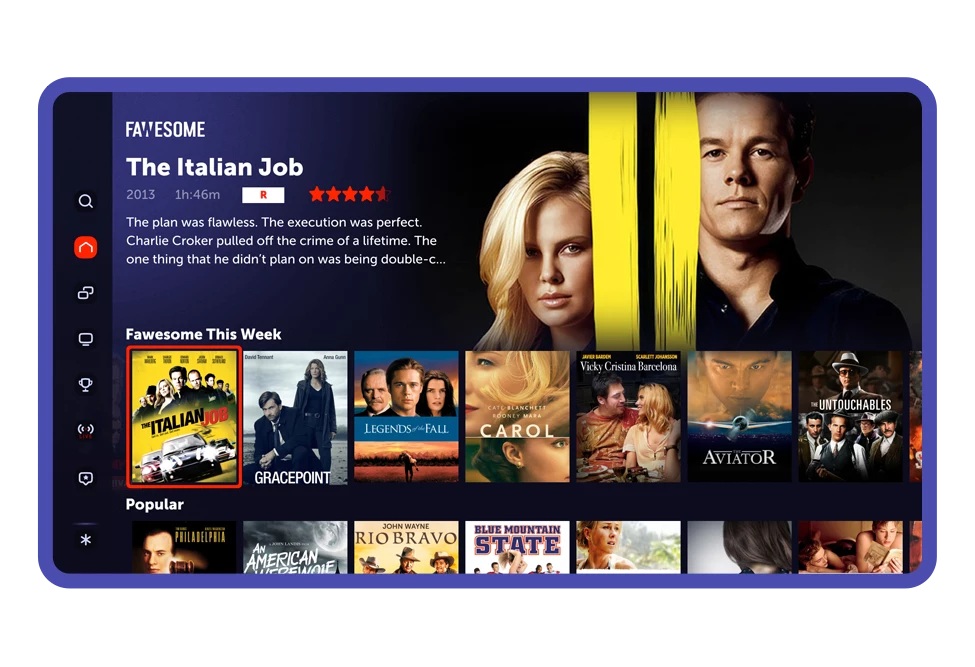FCC Chairman Carr Launches Massive Deregulation Initiative
As part of the effort, the FCC has opened a docket called, `In Re: Delete, Delete, Delete’

WASHINGTON—FCC Chairman Brendan Carr announced that the agency has launched a massive, new deregulatory initiative that could potentially subject virtually all of the agency’s existing regulations to review, including broadcast ownership caps.
As part of the effort the FCC has opened a new docket, titled “In re: Delete, Delete, Delete,” in which the agency said it "seeks comment on every rule, regulation, or guidance document that the FCC should eliminate for the purposes of alleviating unnecessary regulatory burdens."
In making the announcement Carr and the FCC said that the independent regulatory agency was acting in direct response to “President Trump’s leadership and the Trump Administration’s decision to usher in prosperity through deregulation.”
“In particular, this new proceeding will assist the FCC in carrying out the policies that President Trump included in certain Executive Orders, including Executive Order 14192 titled `Unleashing Prosperity Through Deregulation’ and Executive Order 14219 titled `Ensuring Lawful Governance And Implementing The President’s ‘Department Of Government Efficiency’ Deregulatory Initiative,’” the agency said in a news release.
“Under President Trump’s leadership, the Administration is unleashing a new wave of economic opportunity by ending the regulatory onslaught from Washington,” Carr stated. “For too long, administrative agencies have added new regulatory requirements in excess of their authority or kept lawful regulations in place long after their shelf life had expired. This only creates headwinds and slows down our country’s innovators, entrepreneurs, and small businesses. The FCC is committed to ending all of the rules and regulations that are no longer necessary. And we welcome the public’s participation and feedback throughout this process.”
The request for comment on FCC rules can be found here.
In announcing the initiative, the FCC did not address the issue of whether certain rules, such as broadcast ownership caps, can be completely eliminated by the agency without Congressional action.
Get the TV Tech Newsletter
The professional video industry's #1 source for news, trends and product and tech information. Sign up below.
In the document the FCC said "We encourage commenters to consider certain policy factors, as described below and consistent with standards and objectives set forth in recent Presidential orders as well as statutory and regulatory retrospective review standards. We also invite more general comment on rules that should be considered for elimination on other grounds. Submissions should identify with as much detail and specificity as possible the rule or rules that the commenting party believes should be repealed (or modified) and the rationale for their recommended action. Commenters whose comments raise issues related to other open Commission dockets should file their comments in all relevant dockets.”
More specifically, the FCC laid out a lengthy list of considerations that it will use to eliminate regulations. It also urged companies and people to consider those factors in suggesting rules that needed to be eliminated:
- Cost-benefit considerations. "We thus broadly seek comment on cost-benefit considerations relevant to our analysis. Are there existing Commission rules for which the costs exceed the benefits? Are there rules that, if eliminated or modified, could result in greater benefits relative to the associated costs of the new regulatory framework? Are there other ways that cost-benefit considerations should inform our retrospective review of FCC rules?"
- "Experience gained from the implementation of the rule. Although the Commission has “wide latitude to make policy based upon predictive judgments,” there is “a correlative duty to evaluate its policies over time to ascertain whether they work—that is, whether they actually produce the benefits the Commission originally predicted they would.” For one, we seek comment on whether experience gained in the implementation of a given rule provides reason to believe that the rule is unnecessary or inappropriate, whether in its current form or otherwise.
- "Marketplace and technological changes. The occurrence of marketplace and technological changes that render a rule unnecessary or inappropriate are among the most commonly-identified criteria in retrospective review standards and policies. We therefore broadly seek comment on what existing FCC rules are unnecessary or inappropriate on that basis. Are there existing rules that have outlived their usefulness, for which there is no longer any (or only substantially diminished) need, or which otherwise give rise to harms in light of technological and marketplace developments? "
- "Regulation as barrier to entry. It has been often claimed there are large economies of scale inherent in compliance with regulatory programs, with regulation resulting in different levels of compliance costs for different types and sizes of companies.14 Following our obligation to “assess whether laws, regulations, regulatory practices . . . pose a barrier to competitive entry into the communications marketplace,” we seek comment on whether certain regulations impose costs unequally on large and small businesses or if they unfairly disadvantage American-owned businesses."
- "Changes in the broader regulatory context. Rules do not exist in isolation, but operate against a backdrop of other FCC rules, other federal rules and requirements, relevant state and local laws, and industry self-regulatory efforts including the adoption of technical standards or best practices. We seek comment on whether changes in the broader regulatory context demonstrate that particular Commission rules are unnecessary or inappropriate...Does the aggregate cost of a set of FCC rules and other regulatory requirements outweigh the benefits of a Commission rule or rules? Has the adoption of industry standards, best practices, or other self-regulatory efforts sufficiently diminished any need for, or benefits of, particular rules to warrant their repeal? Are there other circumstances where changes in the broader regulatory context render existing FCC rules unnecessary or inappropriate?"
- "Changes in, or other implications of, the governing legal framework. Where the statutory provision that a given rule implements has been changed since the adoption of that rule, it is appropriate for the agency to revisit the rule to determine if its repeal (or modification) would better effectuate the newly-governing statutory scheme.1We seek comment on any examples of Commission rules that should be revisited on that basis. Moreover, we observe that the Supreme Court’s Loper Bright decision overruled the Chevron framework that in years past had provided a relevant backdrop for many agency interpretations of statutes."
- "Other considerations relevant to the retrospective review of Commission rules. We seek comment on any other considerations relevant to our identification of existing rules that are unnecessary or inappropriate. For example, are there rules that remain in the Code of Federal Regulations that no longer have any operative effect—whether because their self-described effectiveness has passed, or otherwise? Are there rules with a sunset period or for which the Commission committed on its own to undertake further regulatory review, but where that regulatory review has not yet occurred? Are there situations where a case- by-case approach is better suited to the implementation of particular statutory mandates as compared to bright-line rules? Are there existing rules that could give rise to a risk of regulatory capture? Are there other problems that could arise from existing rules that render them unnecessary or inappropriate?"
The FCC said that parties should file all comments and reply comments in GN Docket No. 25-133.
George Winslow is the senior content producer for TV Tech. He has written about the television, media and technology industries for nearly 30 years for such publications as Broadcasting & Cable, Multichannel News and TV Tech. Over the years, he has edited a number of magazines, including Multichannel News International and World Screen, and moderated panels at such major industry events as NAB and MIP TV. He has published two books and dozens of encyclopedia articles on such subjects as the media, New York City history and economics.

